Beirut explosion, a year later, no results from investigation
It has been a year the explosion that rocked Beirut on August 4, 2020, killing 218 people, injuring more than 7,000 and devastating much of the city, the Lebanese investigation into the blast has yielded no credible results.
Some of those poor unfortunate souls who have lost loved ones have been, sadly, battered and beaten by riot police for simply demanding the truth about why they died.
Despite a year having passed since the “incident” none of the victims’ families have been asked to give witness statements.
Nor have they received any form of official apology or even been contacted by Lebanese authorities.
The families of the victims would like to know why the ammonium nitrate, used in IEDs and car bombs, was in the port in the first place, who ordered it, and since only 750 tons exploded, what happened to the rest of the 2,750 stored at the warehouse?
The explosion that shook Beirut, a year ago, was beyond any Hollywood movie, the tremor from this explosion registered at 3.5 on the Richter scale, killing 218 people in the blast.
Many of those who were at ground zero at the time of the explosion were never found. More than 7000 were injured, and over 300,000 became instantly homeless.
People from around the world expressed their sorrow at the suddenness of the incident.
However, the first punch was thrown by former US President Donald Trump. In a briefing at the White House shortly after the incident, he claimed that the explosion was a massive bomb attack.
This raised a slew of questions as to who might have done it, how they did it, and most importantly, why?
On the other hand the Lebanese government has claimed since the onset of the incident that more than 2700 tons of ammonium nitrate was stored in the warehouse at the seaport where the incident took place.
There has been much concern over why this huge amount of ammonium nitrate has been stored in a densely populated area since 2014.
It has come out that the ammonium was recovered from a ship brought in illegally and stored in a warehouse at the seaport since 2014, and a lot of officials knew about it, including heads of state, prime ministers, and even the Commander in Chief of the Lebanese Armed Forces.
The atrocity is the culmination of everything that is rotten about Lebanon's governing system, the rampant corruption, the incompetent inaction; a system held hostage by a foreign power has shattered this nation, many times over.
And last but not least, Lebanon’s eternal enemy Israel, which has benefited from every atrocity that has ever befallen the people of Lebanon, whether they had a hand in it or not.
The lesson of the August 4th 2020 atrocity is that accepting the US/French imposed regime means accepting leaders who think nothing of murdering their own citizens.
If we allow them to continue it opens the door to catastrophes of an infinitely greater magnitude than this explosion.
This disaster must be our wake up call for inaugurating a new Lebanon. There's no salvation for a system that is rotten to the core and propped up by Western colonial powers.
Our salvation lies in collectively banishing those who colluded in Lebanon's downfall and to remain wedded to a mediaeval and inherently corrupt sectarian system.
About 100 years ago in 1923 Khalil Gibran wrote in 'The Prophet': "You need to know the secret of death; how can you know the secret If you do not know life?”
Today, Gibran's Beirut does not know the secret of death, as we struggle to decipher the meaning of our lives on this beautiful, yet battered piece of land.
A year after the explosion that rocked Beirut on August 4th 2020 killing 218, injuring more than 7000 and devastating much of the city, the Lebanese investigation into the blast has yielded no credible results.
Families of the victims, some of whom are calling for an international investigation, are sadly being beaten by riot police a year after the tragedy for simply demanding the truth about what killed their kids, their mothers, their fathers, their loved ones.
A year after the explosion, none of the victims’ families in Lebanon have been asked to give witness statements nor have they received any form of official apology or even been contacted by Lebanese authorities.
Families of the victims and every Lebanese citizen want answers to their many questions. They want to know why the ammonium nitrate was in the port, who ordered it, and what's happened to the rest of it since just 750 tons out of the 2750 tons stored there reportedly exploded.
Just imagine what would have happened to Beirut and its greater surrounding areas had the whole 2750 tons exploded.
We want to know if there were other explosives kept in the port, and how the fire that triggered the explosion was started, and whether it was really just a fire, or was it an act of terrorism?
A year on after the largest non nuclear explosion in history, how do you set the scene, post blast, pandemic ridden, financially beaten Lebanon?
…now we're talking about one of the worst catastrophes, we're talking about a disaster that was manmade.
Whether it's negligence, whether it's on purpose, whatever the reason is, all of this time that has passed we've been waiting, and we continue to wait for the judiciary to come out and to give the victims some tribute, to give their families some answers for the very important questions about what happened.
We're not telling them to tell us about the secret issues, the secret side of the investigation, we know very well and we believe in the secrecy of the investigations that should be kept, it should it should be classified for one reason or another, because we want to justice. Justice is, is what we seek, but still now there are, there are things that can be told to the people, to the public opinion, to all the Lebanese parties, to all the Lebanese factions and to the international community.
And if you know, and we know that for a fact, that the Secretary General of Hezbollah, Seyyed Hassan Nasrollah, has come two times. And he has solved this, he has said that we want the judiciary to come and tell us, the one who is taking the responsibility of the investigation to come and tell us about the general lines of what happened, generalise of how did this explosion happen because you know very well that Hezbollah is being accused by certain parties.
Dr Ibrahim Mousawi, Lebanese MP, Hezbollah
218 people died in the Beirut explosion yet, the survivors have been abandoned to slow tortuous deaths, or maybe sickness, from hunger, from poverty, from lack of medicine, and from the political turmoil that is yet to come.
What has Hezbollah done so far within its jurisdiction as part of the government and as part of the Lebanese Parliament as well to ensure justice is to be served at least to the survivors?
Actually one very important issue, there is a government and there is a state, when there is a state that should handle the whole matter. You are exactly right, we are part of the government, we are part of the parliament and we should be responsible, one way or the other, in order to make sure that justice is going to take its place.
To tell you the truth I am in the committee of Justice Administration in the Lebanese Parliament, and we have gone through this issue, deeply, we have brought opinions, legal opinions from judges, from authorities, some people who have authority over such issues.
And they themselves said when we got this appeal from the judiciary that they want the parliamentarians, or some MPs who were ministers at the time to come and appear before the court.
We have tried, as much as we can, in order to take a legal decision, no legal conclusion has come to us that the parliament has any evidence or has any premises where they can build upon to present those to the judiciary. That's why the Lebanese parliament has taken the initiative to direct accusations and in order to later on present a committee, a committee that is going to be composed of eight judges from the Lebanese judiciary, seven MPs from the Lebanese parliament, and they are going to go into deep investigation, for those who are accused of negligence or of whatever.
Dr Ibrahim Mousawi, Lebanese MP, Hezbollah
Why did it take so much time? It has been a year.
Yeah, it's been a year because to tell you the truth, there has been a problem you know, what happened. There was one judge, and then he was replaced by another. And they were like looking into the different evidences.
Dr Ibrahim Mousawi, Lebanese MP, Hezbollah
The atrocity embodies everything that is rotten about Lebanon's governing system, the corruption, the incompetence, inaction and the politicised judiciary system, which explains why the case went to one judge and then to another.
A large group of NGOs that were born directly after that explosion, funded by Western powers, are propagating that Hezbollah is behind the blast, and that the regime is being "held hostage by Hezbollah".
Could you please tell us in what sectors you are holding the Lebanese regime hostage, if you don't mind me asking?
This is a joke but no one likes jokes, actually, when we talk about political things when we talk about a country that is engulfed in such huge problems. Those people who are doing this they are trying to to mislead the public, they are trying to mislead the whole people in Lebanon and outside, because they are actually covering the face of the true criminal, and they are trying to pinpoint to others who are not responsible. Actually, we have no nothing whatsoever to do with what happened. We know this is a political agenda that has been trying to be put into effect through military actions, military operations, military aggressions. We remember this, I mean this is for all of the public we should understand that they are trying to get rid of the resistance one way or another they started and continued this kind of military aggression by Israel. It didn't work then there are the Tkfiri groups; it didn't work. When they came to this issue.
Dr Ibrahim Mousawi, Lebanese MP, Hezbollah
Obstruction, evasion, and delay
Lebanese political parties initially promised a swift investigation into the blast, vowing to deliver results within five days, just five days.
But over the past 12 months the investigation into the biggest crime in Lebanon's history has been marked by little more than obstruction, evasion, and delay, and Lebanon running out of political and economic opportunities.
On August 4th 2020, a devastating blast in a warehouse destroyed much of the centre of the Lebanese capital Beirut. Many neighbourhoods were destroyed, downtown Beirut, looked like a warzone.
Thousands were injured and some 218 people tragically lost their lives on that day and the days that followed, for many, their property and livelihoods were literally blown away. The effects of those explosions are still reverberating one year later.
The country is striving to find a path to emerge from the tragedy that has touched every single person, the destructive fallout of August 4th intensified suffering in Lebanon, which was already reeling from civil unrest, economic and financial hardship, increasing poverty and unemployment, compounded by political deadlock and a soaring number of COVID-19 cases.
A year after this tragedy there is deepening hardship and mounting frustration. It is clear that the situation of ordinary people in Lebanon is worsening by the day. Currently the UN estimates that more than 1 million Lebanese out of a population of almost 8 million, including more than 2 million refugees and migrants ,need relief assistance to cover their basic needs, including access to food, health, education and water.
Lebanon, which not so long ago was a high middle income country, is now facing probably the worst financial and economic crisis in modern history. Over half of its population is living in poverty. It is perhaps not surprising that many people have lost trust in their leaders and institutions.
It is regretful that Lebanon's leaders have been unable to reach consensus on the formation of a new government in the past 12 months, which has delayed urgently needed structural reforms to address the country's numerous challenges. This is a critical moment Lebanon's history.
The combined magnitude, depth, and multidimensionality, of the political, socio economic, and humanitarian crisis facing Lebanon is unprecedented and presents an increasingly challenging landscape for people who still believe that change is possible. Much of the devastation from the blast is still visible.
The port resembles a bomb site, and many buildings have been left in a state of collapse, major questions remain unanswered. Most importantly, why such a large shipment of ammonium nitrate, a highly explosive chemical used in bombs and fertiliser was left stored in the middle of the crowded city four years after unloading in 2014.
The immunity enjoyed by senior officials has raised suspicions among some families that there may never be accountability, but ultimately the responsibility for avoiding the total collapse of Lebanon lies primarily in the hands of its leaders who so far have shown no intention to truly relieve the suffering of the Lebanese population.
According to an article published a few days ago by Reuters the FBI concluded after the blast that the amount of ammonium nitrate that blew up in the port of Beirut last year was just 1/5 of the shipment unloaded there in 2014 adding to suspicions that much of the cargo has actually gone missing.
One wonders who is responsible for the whereabouts of such a shipment and where on earth is the remaining part of the ammonium nitrate consignment?
This is an excellent question actually first I mean, this tragic event that happened, it is now the first anniversary, the answers are still being sought from the state, from the official side, from the judiciary.
If you want (to know) exactly who's responsible here, we're talking about who's responsible for the Beirut port, for the cargo that are there. It's well known actually it's the Lebanese army that is the one who's responsible for the cargo it's not the general security because it's only responsible for the individuals not for the cargo, for the goods, or whatever.
Another is the judiciary, because, because I'm talking generally this is in general. But if you go, when the judiciary, when this was reported to the judiciary, the judge, there's a judge who has taken a decision to confiscate this or to put it somewhere, with, with all these reservations to be reserved the official reservation on it.
He is the one responsible, actually, and this has been said, that when it is in the hands of the judiciary, because of the principle of the separation of powers, no one has the right to go and interfere in the work and the action and the function of the judiciary. So here we are talking about the judiciary system that is responsible and the judge who has taken a decision to put them aside and to like have investigation over them.
Dr Ibrahim Mousawi, Lebanese MP, Hezbollah
Why wasn't he brought in to at least ask him a couple of questions?
This is one of the problems, actually, why we have always called for the sovereignty and the independence of the judiciary in Lebanon, and ... it has to do with the individuals themselves. Certainly, if you put the best system, if you are the best law you need someone to put it into effect. Who to put it into effect? the people then dividuals. So when we talk about the individuals and the people we are talking about judges. This judge who is responsible, he has not been someone to be listened to or to hear him. There was no session of hearing there was nothing. And actually this is why the Lebanese Parliament did not accept actually because you did not even do anything about this judge or other persons responsible.
Dr Ibrahim Mousawi, Lebanese MP, Hezbollah
Concerning the probe into the port blast led by Judge Tarek Al-Bitar, which has been hindered over the past month, as request sent to Parliament and to government, the one that you were talking about, to lift immunity and enable questioning of several top officials.
These demands were either declined, or they were stalled.
Why was it stalled or declined and what is the stance of Hezbollah on this given the endorsement of MPs?
Because I am a member of justice and Administration Committee, I put my signature also on this list actually in order to make a list of accusation against the accused or those who sorts of people, ministers or whatever, why did we do that because we when we got this appeal from Judge Bitar, we sent him a message, we held a meeting, this is the legal way.
This is the legal way to do it, actually, we brought all of the parliamentary committees in the parliament, we are talking about the administration and justice committee and we are talking, when you talk about administration and Justice Committee, all of the Lebanese parties are represented in this, they are presented, and they are represented there.
So you're talking about all the parliamentary blocks they were there when we started to discuss it, and when we heard the those who are accused, there was nothing in the appeal if you want someone to come to you as a judiciary, you should have brought, I'm not talking about evidences, you should bring some premises, something significant to convince us to not lift, as they say, the immunity.
It's not a matter of lifting immunity, what we have in the parliament is that when we have high treason by the ministers or by the President of the Republic, we have the right to form a parliamentary committee, Or we have the right to make this accusation.
Actually the judge without himself did not support, he did not supply us with anything in order to put this into effect, and we sent him a message, we send him a message again and we told him if you have anything, when we discuss this on the legal side by all the parliamentary blocks they were there and they all accepted what we said actually.
Dr Ibrahim Mousawi, Lebanese MP, Hezbollah
And why was Hezbollah specifically targeted?
This is the important question; this tells you that this is the agenda. This is the agenda, this is what they wanted to do we, they have we have been targeted because there is a hidden agenda to all of this, they want to accuse the party of different things because they want to mount the pressure from now till the coming elections, and they want to make this kind of wedge between the people and Hezbollah.
Dr Ibrahim Mousawi, Lebanese MP, Hezbollah
Concerning the lifting of immunity, it's a legal matter that needs evidence, is that why you did not allow it?
Absolutely we, I'll tell you what, you know what happened was just wanted they they put it into the media, you know, instead of sending it to the accused, to the ministers, to the parliamentarians, whoever they are, they heard it from the news, and you know this is the public opinion as with a says this is a kind of propaganda public opinion, you are mobilising the people against those persons.
To tell you the truth, we, we have asked the judge, please re send us anything that could allow us and we are ready to make an anything at any time in order to lift their immunity as you said, he didn't provide us with anything.
Dr Ibrahim Mousawi, Lebanese MP, Hezbollah
Lebanon is at a decisive crossroad now with Najib Mikati because he being the new Prime Minister Designate instead of Saad Harriri and people are criticising his name, especially that Mikati has a responsibility to uphold.
Since he was Prime Minister when the ammonium nitrate entered the Beirut port and he knows about it, what will Mirkati be able to achieve here that Harriri could not.
And what is your main concern, as Hezbollah, with the upcoming political and security reality in Lebanon, which, over the past couple of days, has taken a huge dive in security?
I am not in a position to defend Prime Minister designate Mirkati or to attack someone else it's only that we have a way in order to come out of this problem.
What's the way? The only way is to help to form a government. Now who was nominated to this position? You know, when we talk about Lebanon, we talk about the priorities, we have a political system will come into a deadlock.
We have a structural deficit; we have a structural disorder in the political system itself. Now we are as just like what you said in a decisive, very sensitive, very crucial position, on the economic level and the political level and on every level.
Now Saad Hariri was not able to, was not successful to form the cabinet he named in the name of the name of the Sunni majority, let's accept that we live in a confessional system. He named he named Mirkati to this position, and that's why we accepted this and we have nominated him.
We have named him. Why did we do that? Because this is the only way to try to … come out of the problem of the crisis.
Dr Ibrahim Mousawi, Lebanese MP, Hezbollah
So hopefully we shall witness the formation a government soon enough to try and lift the country from the political and economic challenges it faces.
We don't say we don't have problems, we don't say that there are no flaws or mistakes, but this is the way that would lead us out and hopefully we can do it.
Dr Ibrahim Mousawi, Lebanese MP, Hezbollah
VIDEO | Press TV's news headlines
July 26: ‘Axis of Resistance’ operations against Israeli occupation
Palestinian resistance fighters hit Israeli Merkava 4 tanks
VIDEO | UK police brutal assault on Muslim family sparks outrage, protests
Hamas: Death of leader in Israeli jail amounts to murder
EU sends €1.5 billion to Ukraine from frozen Russian assets
VIDEO | Millions of Yemenis rally for Gaza, call for more anti-Israel operations
UN chief calls for Olympic truce as games begin in Paris


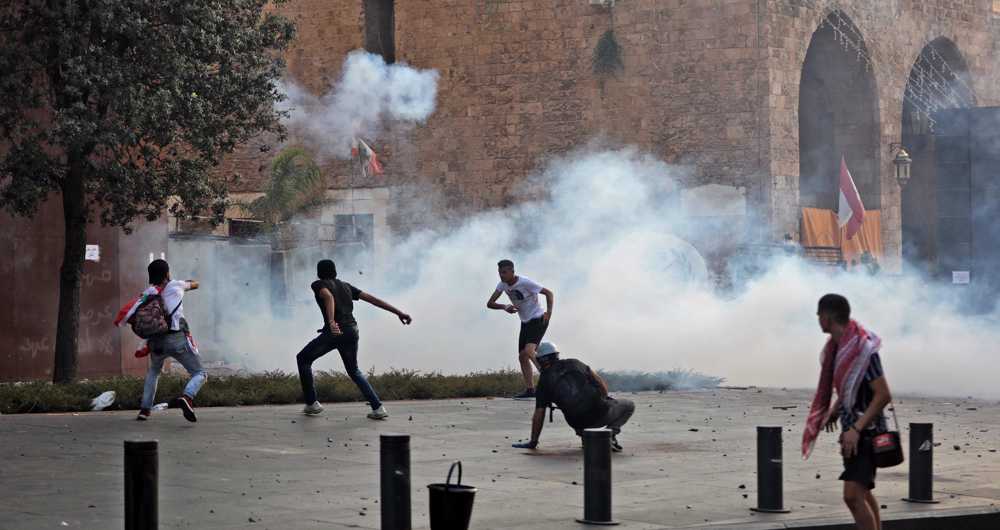
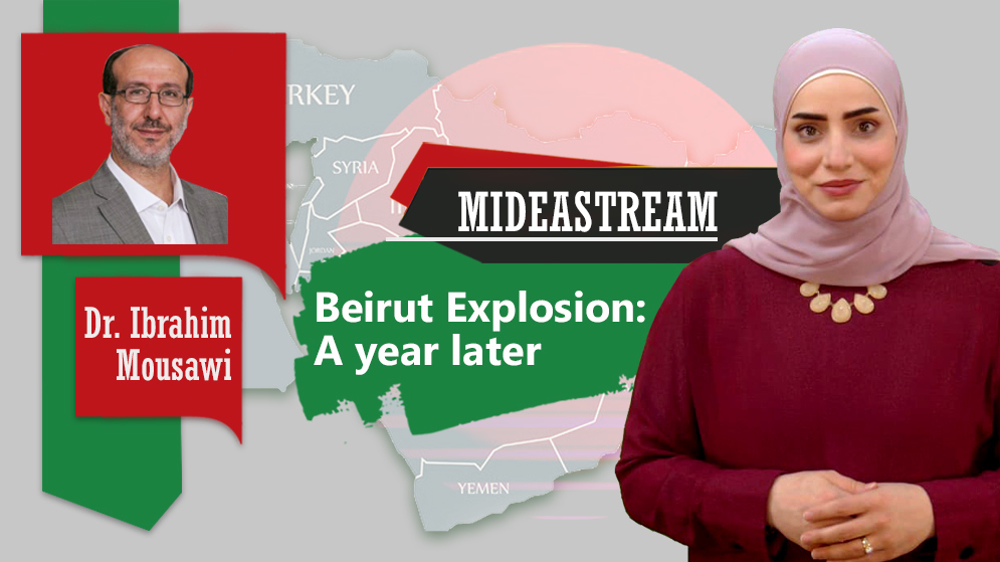
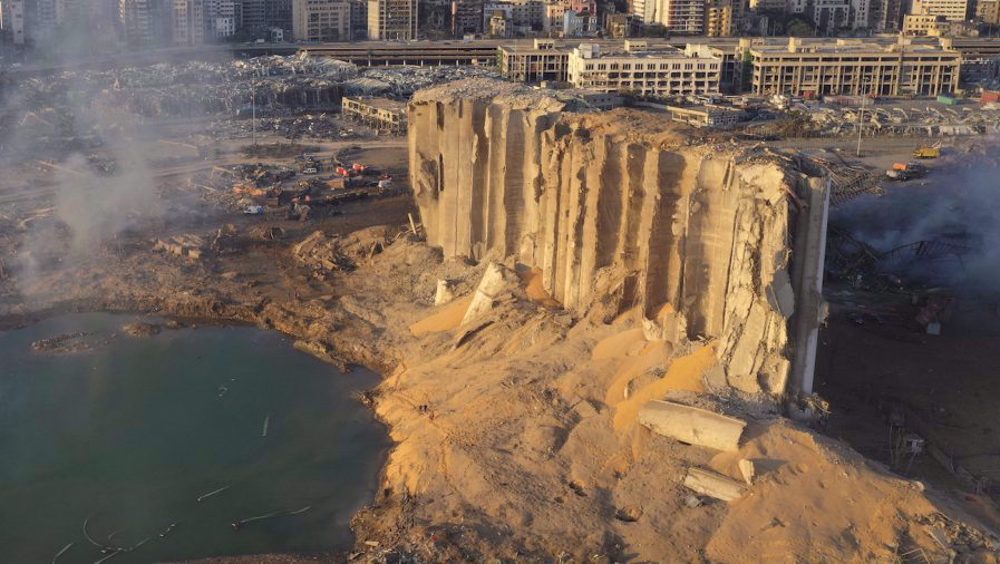
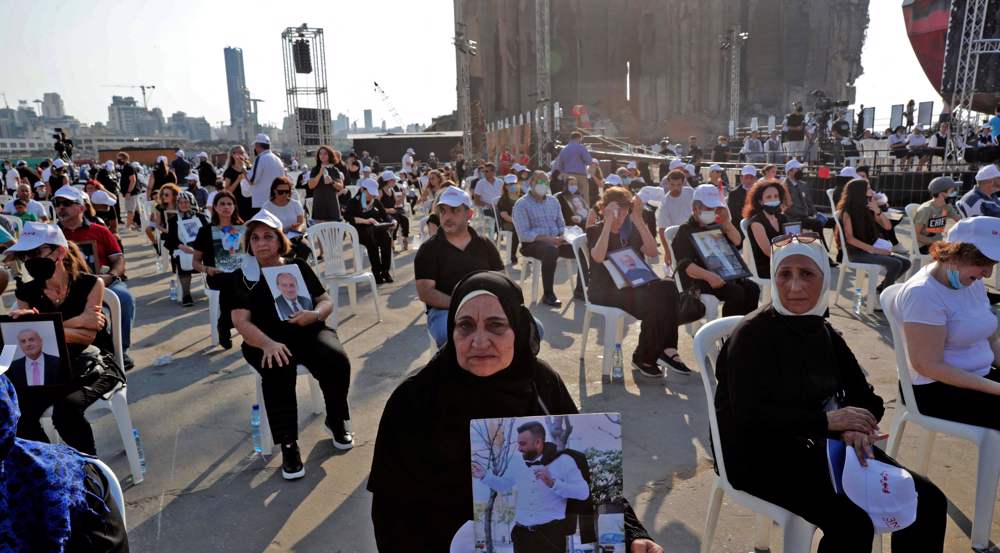
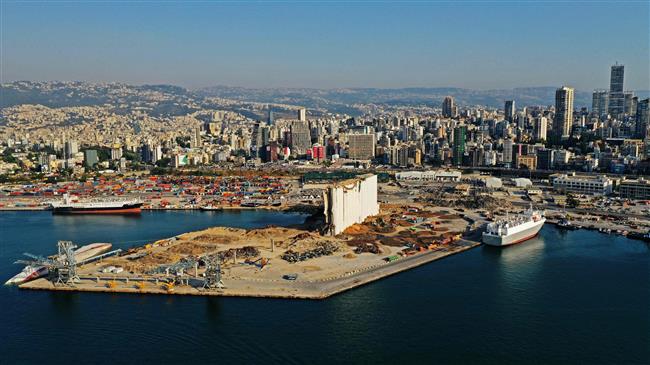
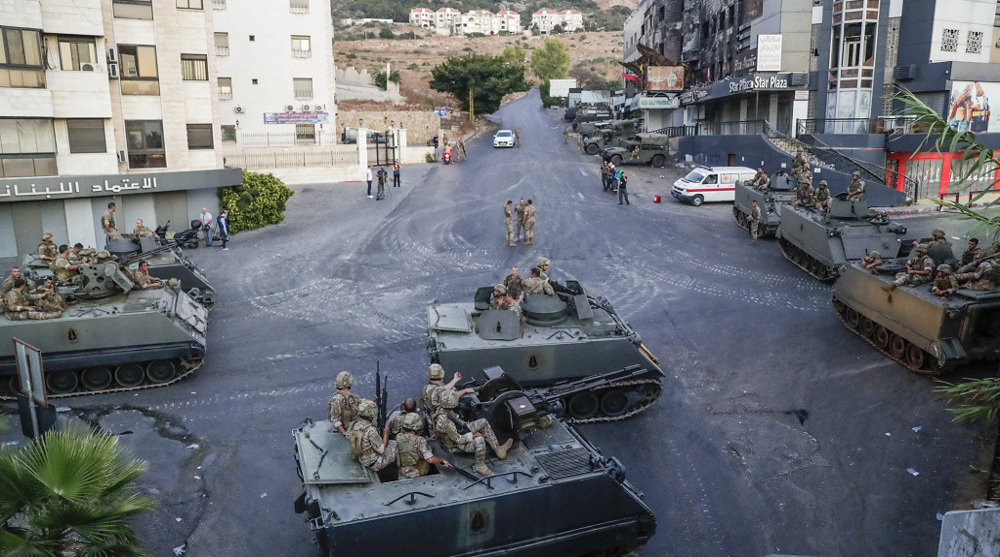
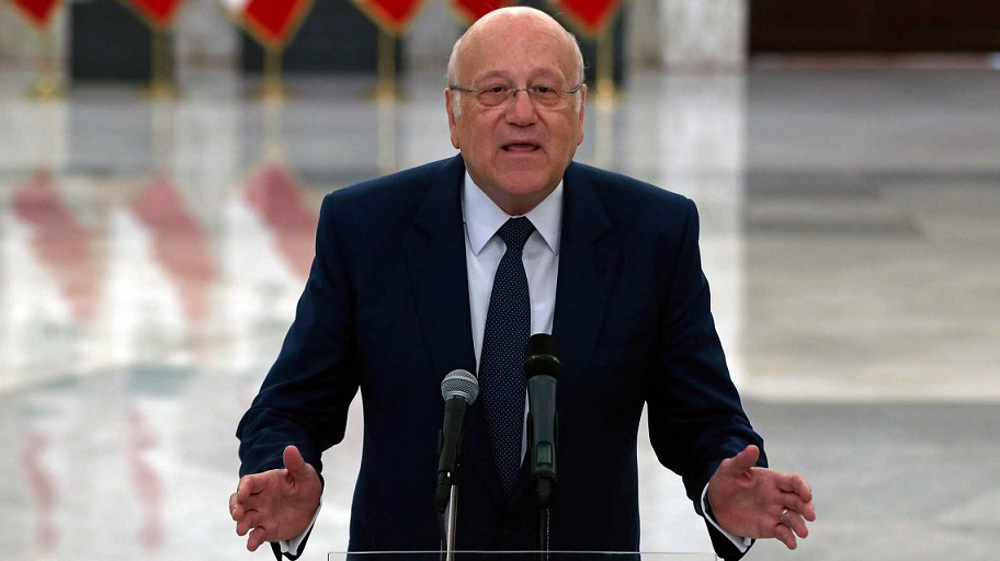


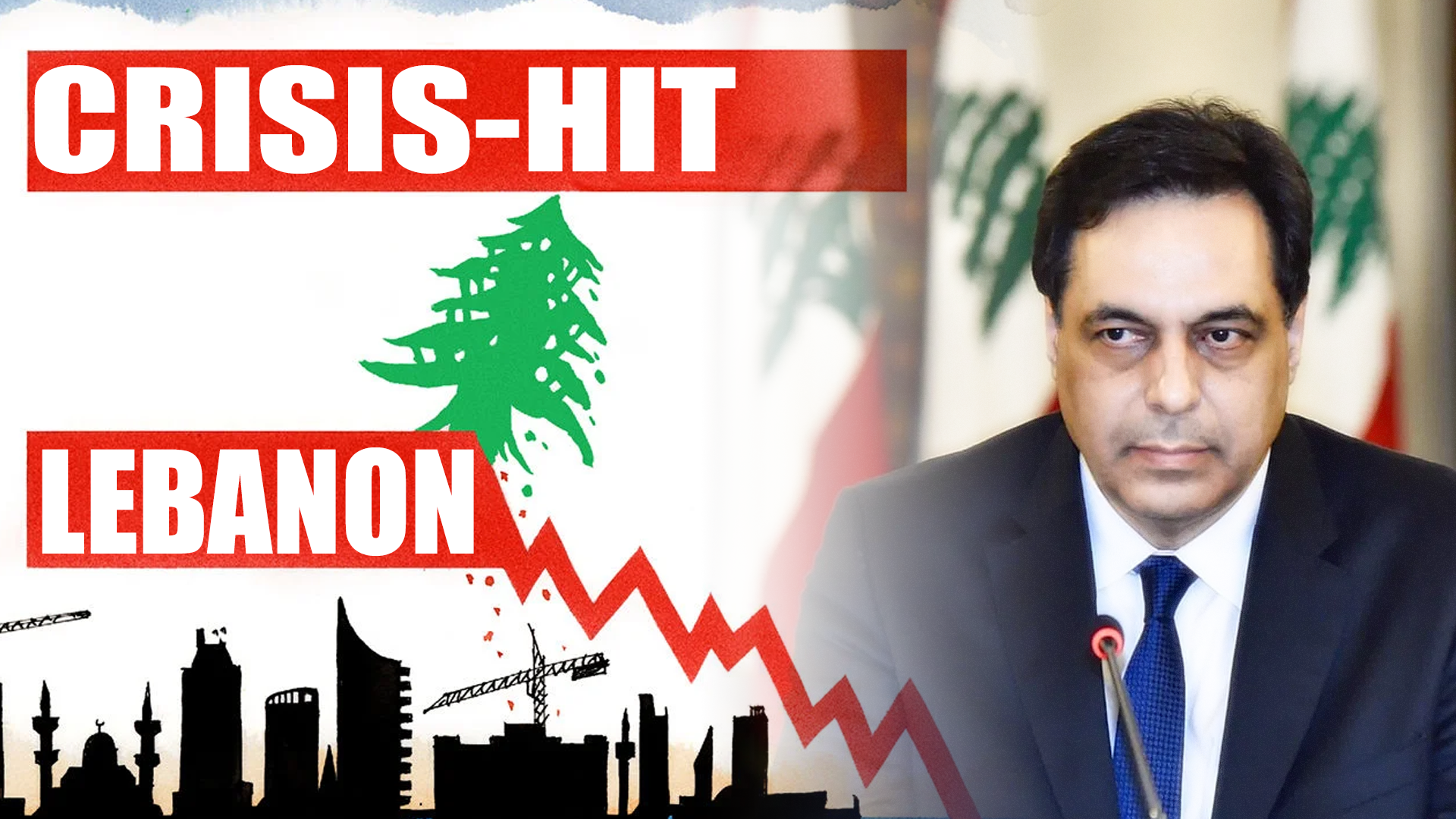
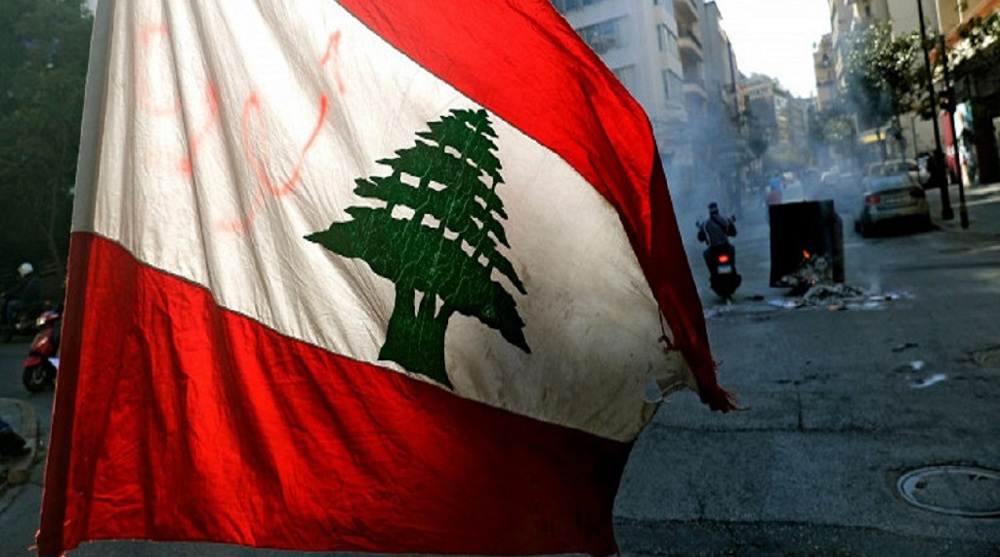
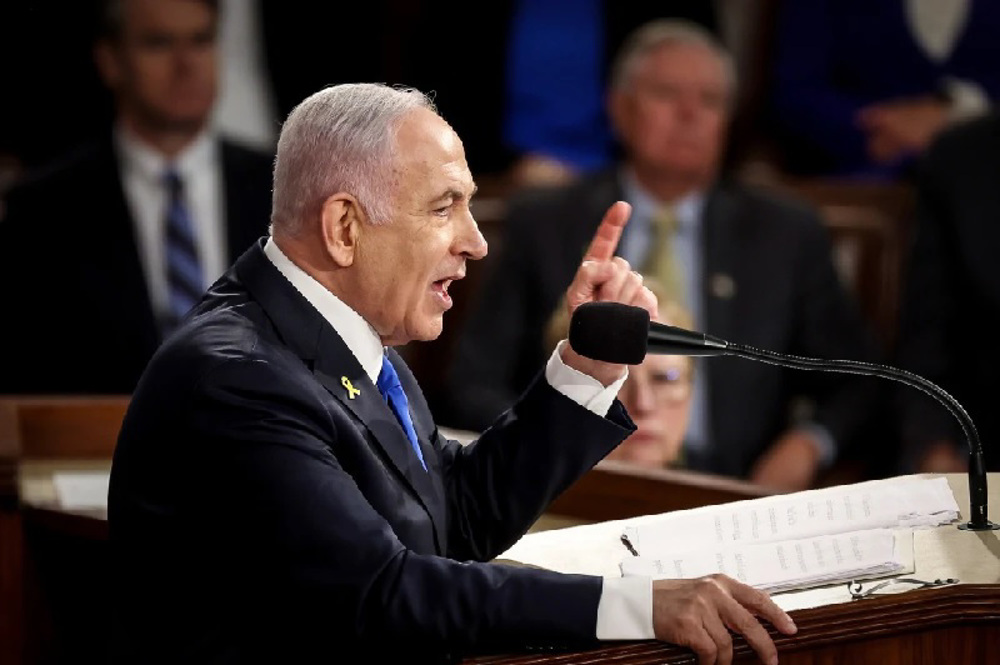
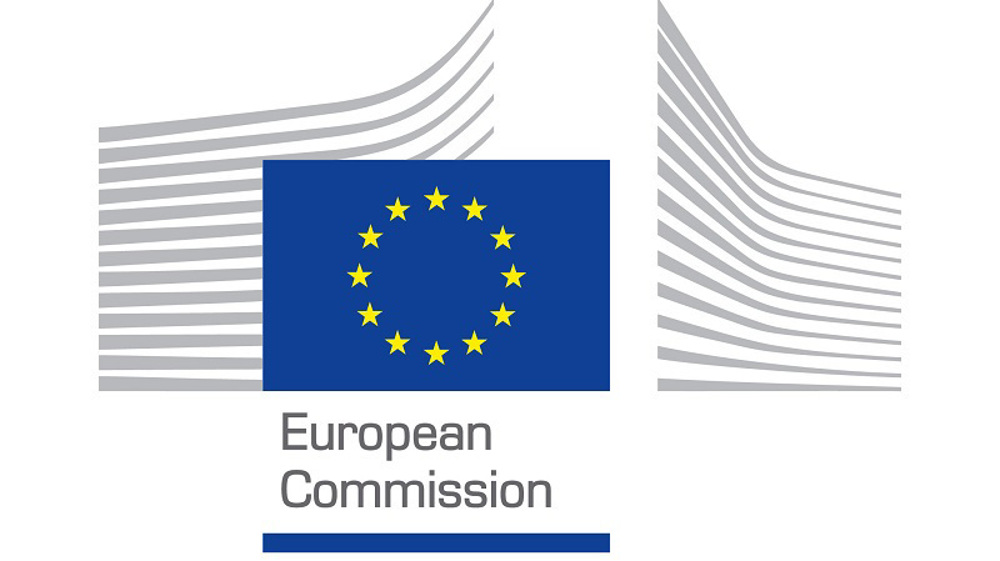
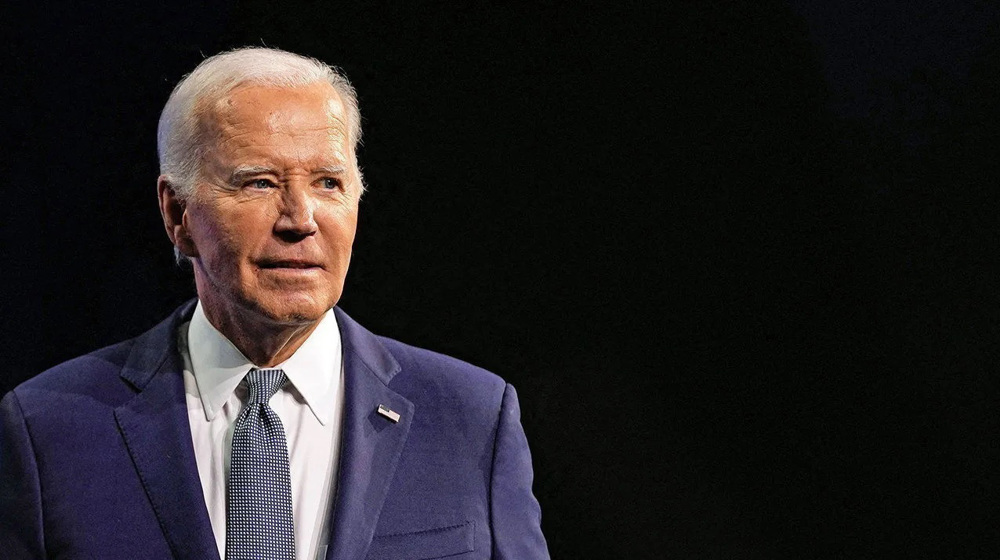




 This makes it easy to access the Press TV website
This makes it easy to access the Press TV website